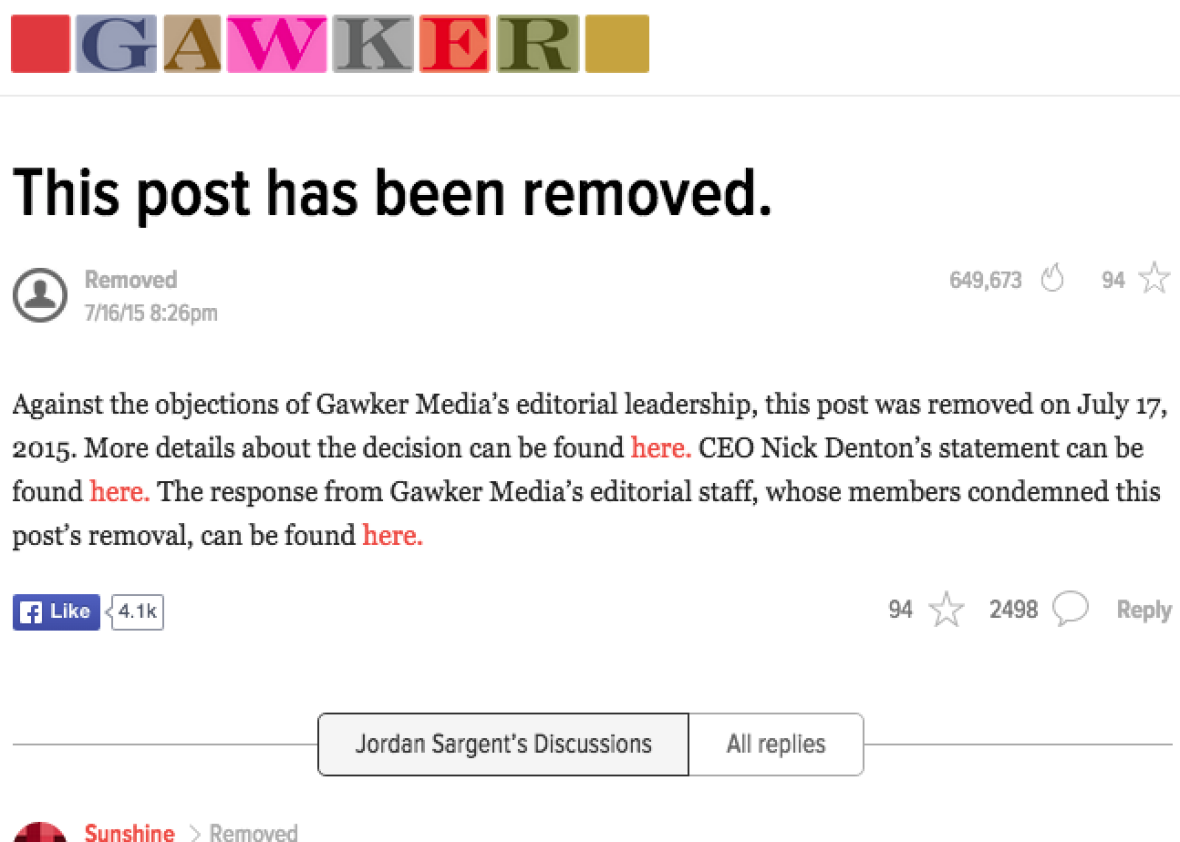Following its embarrassing decision last week to publish—and later pull—a dramatic, tabloid-esque story about a male media executive soliciting sex from a male prostitute, Gawker seems to be rupturing internally. On Monday the site announced that two of its most senior editorial leaders decided to step down. Tommy Craggs, the executive editor of Gawker Media, and Max Read, the editor-in-chief of the Gawker site, both handed in resignation letters.
In bitter memos to Gawker staff that were posted on the site itself, Craggs and Read announced that they disagreed with the company’s decision to remove the controversial post about the media executive—a decision that was made by the managing partnership and opposed by Gawker’s editorial team. The majority of Gawker Media’s leadership voted Friday to delete the piece, which several other media outlets, as well as commenters on the piece itself, decried as lewd, unprofessional, and unethical. Craggs was one of two members who dissented and apparently the only strictly editorial voice to get a vote on the matter. Excerpted from his memo on Monday:
I want to give you some sense of what happened within Gawker Media on Friday, and what has happened since, as a means of explaining why I have to resign as executive editor…
All I got at the end of the day was a workshopped email from [CEO Nick] Denton, asking me to stay on and help him unfuck the very thing he’d colluded with the partners to fuck up. No one told me the vote was actually happening, by the way. It just … happened, while I was on a plane to California. No one in editorial was informed that Nick had reached what he now calls the point of last resort; no one had explained what other resorts had been tried and had failed in the less than 24 hours between publication and takedown. The final count was 4-2 (with [Gawker president and chief legal counsel Heather Dietrick]’s nay joining mine, despite initial reports otherwise), and the message was immediately broadcast to the company and to its readers that the responsibility Nick had vested in the executive editor is in fact meaningless, that true power over editorial resides in the whims of the four cringing members of the managing partnership’s Fear and Money Caucus.
Will they ever explain themselves to you? I don’t know.
Read’s note—which, in spite of its comparatively milder tone, accused Gawker Media’s managing partnership of turning the company’s claim of being the largest independent media company “into, essentially, a joke”—was similarly curt. He wrote that he hopes the partnership “recognizes the degree to which it has betrayed the trust of editorial,” and that he will look back on his time at Gawker with fondness and pride.
Craggs’ and Read’s memos include reflections on the history of a company that once prided itself on “transparency” and “fearlessness,” as well as text message threads among members of Gawker Media that reveal the internal debate over the removal of the post.
